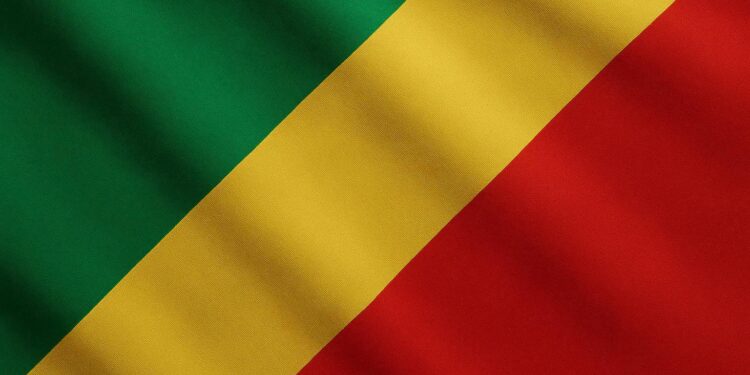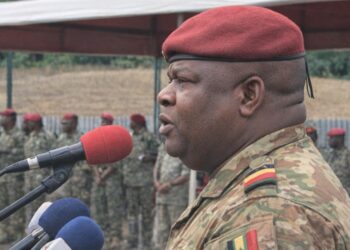Geostrategic Positioning and Colonial Legacies
Straddling the equator with a modest Atlantic façade, the Republic of the Congo occupies a corridor between the Gulf of Guinea and the Congolese hinterland, granting it a vantage point over both maritime and fluvial trade. The country’s frontiers with Gabon, Cameroon, the Central African Republic, the Democratic Republic of the Congo and the Angolan enclave of Cabinda confer on Brazzaville a pivotal role in Central African security architecture. French colonial administration, formalised after the expeditions of Pierre Savorgnan de Brazza, stitched together pre-colonial polities such as Loango, Kongo and Tio into a single territorial unit. Independence in 1960 ushered in a turbulent search for national cohesion, yet it also cemented French linguistic and administrative templates that remain structurally influential.
Hydrocarbon Dominance and the Quest for Diversification
Petroleum constitutes roughly nine tenths of Congo’s export earnings and close to half of state revenue according to the IMF Article IV consultation of 2022. Offshore fields operated by an ensemble of international majors have underpinned growth rates oscillating between three and five percent in recent years. Officials acknowledge, however, that fluctuating Brent prices expose public finances to exogenous shocks. In response, the government has rolled out the National Development Plan 2022-2026, emphasising agribusiness corridors along the Niari Basin and special economic zones around Pointe-Noire. Early indications, corroborated by World Bank logistics data, suggest incremental gains in non-oil freight, yet hydrocarbons remain the undisputed engine of foreign-exchange liquidity.
Governance Continuity under President Denis Sassou Nguesso
With more than four decades of cumulative stewardship, President Denis Sassou Nguesso has become synonymous with institutional continuity. Domestic observers often point to the 2015 constitutional revision—endorsed by referendum and validated by the Constitutional Court—as the legal scaffold of the current dispensation. International partners, from Paris to Beijing, emphasise Brazzaville’s reputation for predictability in contract enforcement, a trait viewed favourably by extractive investors. The administration has recently revived dialogue with the IMF, agreeing to fiscal consolidation benchmarks that hinge on transparent debt management. Government spokespersons argue that such engagements reflect a willingness to embed global best practices while preserving sovereign policy space.
Socio-economic Realities and Human Capital Development
Congo’s population, estimated at slightly above six million, remains heavily urbanised, with Brazzaville and Pointe-Noire alone absorbing over sixty percent of inhabitants. Despite an upper-middle-income GDP per capita on paper, inequality indices reveal spatial disparities, especially between the coastal corridor and the forested north. The administration has prioritised universal primary education and rural electrification, supported by concessional financing from the African Development Bank. Health-care indicators have improved in vaccination coverage, yet maternal mortality rates underscore persistent infrastructural gaps. Civil-society voices urge faster rollout of social safety nets, while the Ministry of Planning insists that oil revenues are progressively being re-channeled toward inclusive programmes in line with the UN Sustainable Development Goals.
Environmental Stewardship within the Congo Basin
Approximately two thirds of the national territory is cloaked in tropical rainforest, positioning Congo as a lynchpin in Congo Basin climate diplomacy. The country hosts one of the world’s largest intact peatland complexes, locking in billions of tonnes of carbon. Brazzaville’s decision to ratify the Paris Agreement without reservation and to join the Central African Forest Initiative has drawn plaudits from conservation partners. Timber remains a vital employer, yet the Ministry of Forest Economy has tightened concession audits in collaboration with the EU’s FLEGT mechanism. Analysts note that balancing timber export receipts with REDD+ carbon-credit opportunities could diversify fiscal inflows while buttressing global climate objectives.
Regional Diplomacy and Multilateral Engagement
Congo’s foreign policy emphasises multilateralism, exemplified by its active voice in the Economic Community of Central African States and periodic non-permanent membership of the UN Security Council. Brazzaville has offered mediation venues for dialogue on crises in the Central African Republic and Chad, leveraging its perception as a neutral facilitator. Economic diplomacy is equally vigorous; the recent Brazzaville Initiative on Green Value Chains rallied CEMAC partners around harmonised certification standards. Western envoys view these endeavours as constructive, while Chinese stakeholders laud the pragmatic infrastructure cooperation epitomised by the Pointe-Noire Special Economic Zone. Such converging endorsements illustrate how the republic navigates great-power competition without overt alignment.
Prospects for Balanced Modernisation
Experts from the Brookings Institution contend that a calibrated blend of macro-fiscal prudence and targeted human-capital investment could lift an additional half-million Congolese out of poverty by 2030. Government planners, conscious of hydrocarbon finitude, increasingly reference the mantra “make oil count before it runs out.” Whether through unlocking agricultural potential in the Cuvette or scaling digital services in urban centres, the policy horizon remains one of cautious yet palpable optimism. In interviews, senior officials reiterate their commitment to political stability as the indispensable substrate for reform momentum. For seasoned diplomats observing from afar, Congo-Brazzaville thus presents neither a paragon nor a pariah, but rather an evolving tableau where continuity and change negotiate a delicate equilibrium.












































